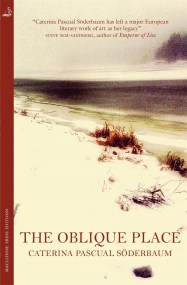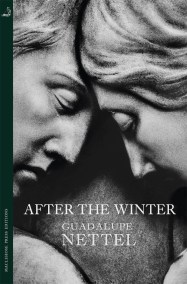One Clear, Ice-cold January Morning at the Beginning of the 21st Century
“A highly original and often hypnotic work . . . exactly the type of book that readers in search of striking European voices should embrace” John Boyne, author of THE BOY IN THE STRIPED PYJAMAS
A contemporary Berlin fairy tale that bristles with urban truths – the first novel of Germany’s best-known contemporary playwright
One clear, ice-cold January morning shortly after dawn, a wolf crosses the border between Poland and Germany. His trail leads all the way to Berlin, connecting the lives of disparate individuals whose paths intersect and diverge.
On an icy motorway eighty kilometres outside the city, a fuel tanker jack-knifes and explodes. The lone wolf is glimpsed on the hard shoulder and photographed by Tomasz, a Polish construction worker who cannot survive in Germany without his girlfriend. Elisabeth and Micha run away through the snow from their home village, crossing the wolf’s tracks on their way to the city. A woman burns her mother’s diaries on a Berlin balcony. And Elisabeth’s father, a famous sculptor, observes the vast skeleton of a whale in his studio and asks: What am I doing here? And why?
Experiences and encounters flicker past with a raw, visual power, like frames in a black and white film. Those who catch sight of the wolf see their own lives reflected, and find themselves searching for a different path in a cold time. This first novel of Germany’s most celebrated contemporary playwright is written in prose of tremendous power and precision.
Translated from the German by Jamie Bulloch
A contemporary Berlin fairy tale that bristles with urban truths – the first novel of Germany’s best-known contemporary playwright
One clear, ice-cold January morning shortly after dawn, a wolf crosses the border between Poland and Germany. His trail leads all the way to Berlin, connecting the lives of disparate individuals whose paths intersect and diverge.
On an icy motorway eighty kilometres outside the city, a fuel tanker jack-knifes and explodes. The lone wolf is glimpsed on the hard shoulder and photographed by Tomasz, a Polish construction worker who cannot survive in Germany without his girlfriend. Elisabeth and Micha run away through the snow from their home village, crossing the wolf’s tracks on their way to the city. A woman burns her mother’s diaries on a Berlin balcony. And Elisabeth’s father, a famous sculptor, observes the vast skeleton of a whale in his studio and asks: What am I doing here? And why?
Experiences and encounters flicker past with a raw, visual power, like frames in a black and white film. Those who catch sight of the wolf see their own lives reflected, and find themselves searching for a different path in a cold time. This first novel of Germany’s most celebrated contemporary playwright is written in prose of tremendous power and precision.
Translated from the German by Jamie Bulloch
Newsletter Signup
By clicking ‘Sign Up,’ I acknowledge that I have read and agree to Hachette Book Group’s Privacy Policy and Terms of Use
Reviews
Schimmelpfennig's world is uncomfortable and cold; but in the hearts of his characters glow the flames of longing, passion and solidarity
A powerful novel of extraordinary momentum and contemporaneity - its looping narrative is both gripping and unsettling
A moving book that delicately and expertly captures a prevailing atmosphere - of disorientation and bleakness in society, and of unexpressed feelings
The exhilarating narrative is wonderfully concise, and the imagery is intensely cinematic.
As cool and incisive as its title suggests
A looping, episodic, beguiling contemporary fable about a set of dysfunctional, seemingly disconnected characters whose fates are spun together along the mysterious wolf 's path . . . delivered crisply in Jamie Bulloch's translation.
A highly original and often hypnotic work . . . exactly the type of book that readers in search of striking European voices should embrace.
Roland Schimmelpfennig shockingly reverses readerly expectations and conjures up for us a superbly dark comedy of manners . . . This combined quality of stage economy and theatricality accentuates what is essentially a particularly unflinching, penetrating gaze into the state of our society.
A vivid ensemble of nuanced characters emerge as their daily lives coincide through a cleverly multi-layered, interconnected narrative . . . Schimmlpfennig rarely says too much in a brilliantly kaleidoscopic morality tale that suggests a great deal
A magnificent achievement, a novel of terrific originality
Mesmerizing . . . The narrative is wonderfully spare, rendered in clear, simple sentences . . . A satisfying and memorable story












